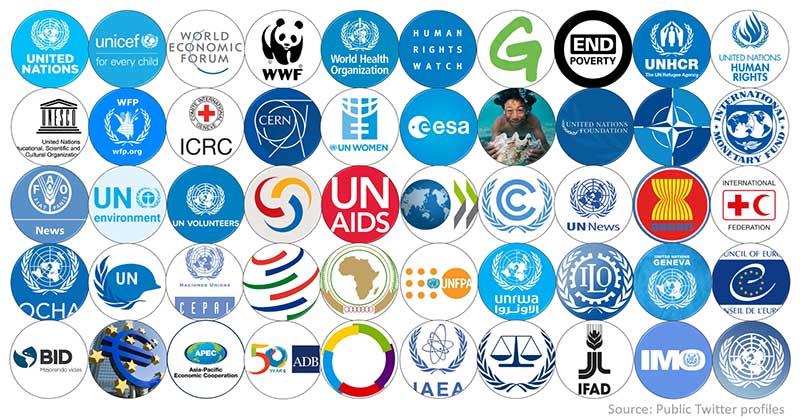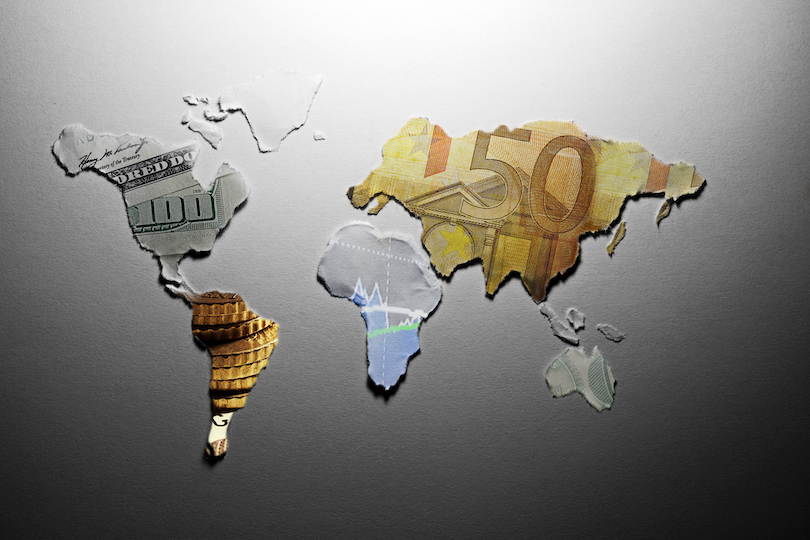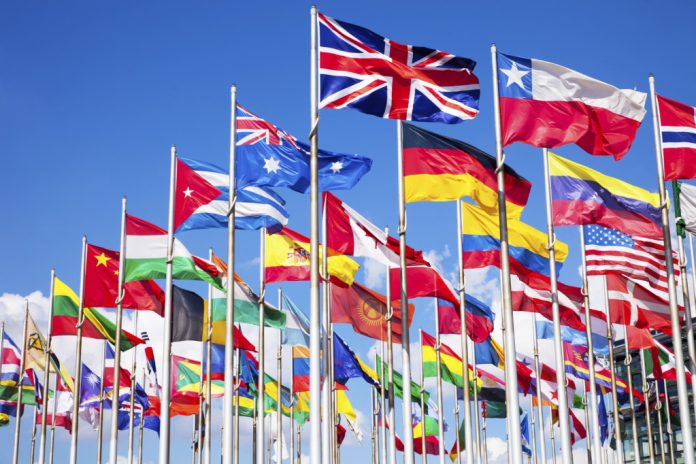In today’s interconnected world, global politics plays a pivotal role in shaping the international landscape. Understanding the key concepts of global politics is essential for comprehending the dynamics and complexities of international relations. The 16 Concepts are:
- State Sovereignty
- Power and Influence
- International Organizations
- Diplomacy and Negotiation
- Conflict and Cooperation
- National Interest
- Human Rights
- Security and Defense
- Economic Interdependence
- Environmental Sustainability
- Globalization
- Political Ideologies
- Political Economy
- Cultural Identity
- Global Governance
- Non-State Actors
Concept 1: State Sovereignty
State sovereignty refers to the authority and autonomy of a state to govern itself without interference from external actors. It is a fundamental principle in global politics, as recognized by international law.
Subconcept: Westphalian Sovereignty
The concept of Westphalian sovereignty emerged from the Treaty of Westphalia in 1648, establishing the modern state system and the principle of non-interference in domestic affairs. Read about What are the 4 Types of Politics
Concept 2: Power and Influence
Power and influence are central to global politics, determining the ability of states and non-state actors to shape outcomes and assert their interests on the world stage.
Subconcept: Soft Power
Soft power, as coined by Joseph Nye, refers to the ability to influence others through attraction and persuasion rather than coercion or force.
Concept 3: International Organizations
International organizations such as the United Nations (UN), World Bank, and International Monetary Fund (IMF) play critical roles in global politics by promoting cooperation, resolving conflicts, and addressing global challenges.

Subconcept: United Nations Security Council
The UN Security Council is responsible for maintaining international peace and security and has the authority to impose sanctions and authorize military interventions.
Concept 4: Diplomacy and Negotiation
Diplomacy and negotiation are essential tools for managing international relations and resolving disputes peacefully. Diplomatic efforts aim to foster dialogue and cooperation between states.
Subconcept: Track II Diplomacy
Track II diplomacy involves unofficial, informal channels of communication and negotiation conducted by non-governmental actors to complement official diplomatic efforts.
Concept 5: Conflict and Cooperation
Conflict and cooperation are inherent features of global politics, reflecting competing interests and differing priorities among states and non-state actors.
Subconcept: Security Dilemma
The security dilemma arises when actions taken by one state to enhance its security are perceived as threats by other states, leading to a spiral of mistrust and arms build-up.
Concept 6: National Interest
National interest encompasses the strategic goals and objectives pursued by a state to safeguard its sovereignty, security, and prosperity in the international arena. Don’t Miss to Check Out Our Website: Globall Browse
Subconcept: Realpolitik
Realpolitik is a pragmatic approach to foreign policy that prioritizes the pursuit of national interests over ideological or moral considerations.
Concept 7: Human Rights
Human rights are universal principles that protect the inherent dignity and freedoms of individuals, regardless of nationality, ethnicity, or creed.
Subconcept: Universal Declaration of Human Rights
The Universal Declaration of Human Rights, adopted by the UN General Assembly in 1948, establishes a common standard of human rights for all peoples and nations.
Concept 8: Security and Defense
Security and defense strategies are designed to safeguard states and societies from internal and external threats, including military aggression, terrorism, and cyber attacks.
Subconcept: Collective Security
Collective security entails the mutual defense and support of states against common threats through alliances, treaties, and multilateral agreements.
Concept 9: Economic Interdependence
Economic interdependence refers to the interconnectedness of national economies through trade, investment, and financial flows, which can foster cooperation and mitigate conflicts.
Subconcept: Global Supply Chains
Global supply chains involve the production and distribution of goods and services across multiple countries, contributing to economic growth and development.
Concept 10: Environmental Sustainability
Environmental sustainability entails the responsible stewardship of natural resources and ecosystems to ensure their long-term viability and resilience in the face of global challenges such as climate change and biodiversity loss.
Subconcept: Paris Agreement
The Paris Agreement is a landmark international treaty aimed at combating climate change by reducing greenhouse gas emissions and promoting sustainable development.
Concept 11: Globalization
Globalization refers to the increasing interconnectedness and interdependence of economies, societies, and cultures worldwide, driven by advances in technology, communication, and transportation.
Subconcept: Cultural Homogenization
Cultural homogenization is the process by which cultural differences diminish or disappear as a result of globalization, leading to the spread of uniform cultural norms and values.
Concept 12: Political Ideologies
Political ideologies are sets of beliefs, values, and principles that shape individuals’ and societies’ views on governance, justice, and social order.
Subconcept: Liberalism
Liberalism advocates for individual rights, representative democracy, free markets, and the rule of law as the foundation of a just and prosperous society.
Concept 13: Political Economy
Political economy examines the relationship between politics and economics, analyzing how political institutions and policies influence economic outcomes and vice versa.

Subconcept: Keynesian Economics
Keynesian economics, named after economist John Maynard Keynes, emphasizes government intervention in the economy to stabilize employment, control inflation, and promote growth during economic downturns.
Concept 14: Cultural Identity
Cultural identity encompasses the shared values, traditions, language, and symbols that define a community or group’s sense of belonging and uniqueness.
Subconcept: Cultural Relativism
Cultural relativism acknowledges the diversity of cultural practices and norms across societies and emphasizes the need to understand and respect cultural differences without imposing ethnocentric judgments.
Concept 15: Global Governance
Global governance refers to the mechanisms and institutions through which states and non-state actors collaborate to address transnational challenges and regulate global affairs.
Subconcept: Multilateralism
Multilateralism involves cooperation and decision-making among multiple states and organizations to address common interests and achieve collective objectives.
Concept 16: Non-State Actors
Non-state actors, including multinational corporations, non-governmental organizations (NGOs), and terrorist groups, exert influence and shape outcomes in global politics alongside states.
Subconcept: Transnational Advocacy Networks
Transnational advocacy networks are coalitions of NGOs, activists, and experts that mobilize public opinion and influence policy outcomes on global issues such as human rights, environmental protection, and social justice.
Conclusion
In conclusion, the concepts of global politics are multifaceted and interconnected, reflecting the complex dynamics of international relations. By understanding these concepts, individuals and policymakers can navigate the challenges and opportunities of an increasingly globalized world.
FAQs
- What is the significance of state sovereignty in global politics?
- State sovereignty is significant in global politics because it establishes the authority and autonomy of states to govern themselves without external interference. It forms the basis of the modern state system and ensures that states can pursue their interests and objectives without undue influence from other actors.
- How does soft power differ from hard power in international relations?
- Soft power differs from hard power in that it relies on attraction, persuasion, and influence to achieve objectives, whereas hard power relies on coercion, force, and military strength. Soft power involves shaping perceptions, values, and preferences to gain cooperation and support, whereas hard power involves the threat or use of military force or economic sanctions.
- What role do international organizations play in promoting global cooperation?
- International organizations play a crucial role in promoting global cooperation by providing platforms for dialogue, negotiation, and consensus-building among member states. They facilitate coordination and collaboration on various issues, including peacekeeping, development assistance, humanitarian aid, and environmental protection. International organizations also help address global challenges that require collective action and provide mechanisms for resolving disputes peacefully.
- How do states balance national security concerns with respect for human rights?
- Balancing national security concerns with respect for human rights is a complex challenge for states. While states have a responsibility to protect their citizens from threats, they must also uphold fundamental human rights principles, such as the right to life, liberty, and dignity. Achieving this balance often requires adopting transparent and accountable security policies, implementing effective oversight mechanisms, and ensuring that security measures comply with international law and human rights standards.
- What are the implications of economic interdependence for national sovereignty and security?
- Economic interdependence has both positive and negative implications for national sovereignty and security. On one hand, it promotes cooperation and mutual benefit among states, fosters economic growth, and reduces the likelihood of conflict. On the other hand, it can create vulnerabilities and dependencies that may compromise national sovereignty and security, especially in times of economic crisis or geopolitical tensions. Managing economic interdependence requires robust policies and strategies to mitigate risks and enhance resilience at the national and international levels.







